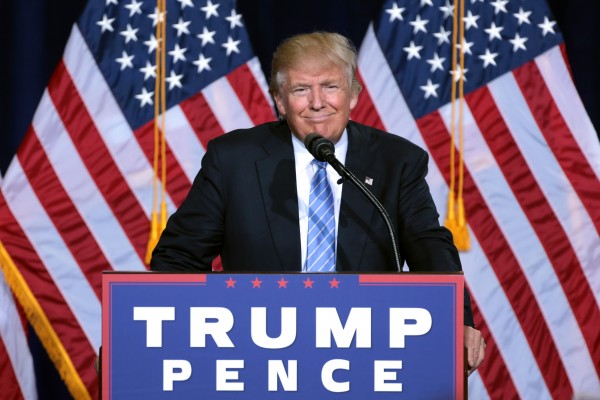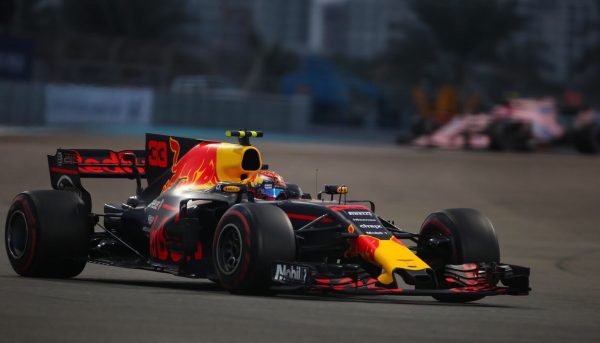Trump: A Warm Welcome in the Middle East?
BY MERNA SAKR
@mernasakr1
![Donald Trump's isolationist protectionist foreign policy might have a silver lining for the Middle East [Marked for re-use]](http://www.auccaravan.com/wp-content/uploads/2016/11/Donald_Trump_by_Gage_Skidmore_12-e1479983492960.jpg)
A day before the 2016 US Presidential Elections, Donald Trump had a 15 per cent chance of winning based on the latest state national polls. However, with his victory – which shocked many pundits in the US and around the world, some Middle Eastern states await to see if he will change long-standing US policies in the region.
During his campaign, one of the few consistent positions Trump has taken was his opposition to American regime-changing intervention in the Middle East for the sake of implementing democratic policies, which he criticized for being very expensive in his Republican National Convention speech.
“After 15 years of wars in the Middle East, after trillions of dollars spent and thousands of lives lost, the situation is worse than it has ever been before,” he had said.
However, he is still greatly keen on destroying Islamic militant groups, which may coincide with the American legacy to support its regional interests at the expense of civilian lives throughout the Middle East.
But James Sunday, visiting research assistant professor of political science, thinks it is unclear whether any serious changes will be made.
“As an anti-establishment candidate who does not have his own records of voting on foreign policy and because of the political institutions that exist in the US, it actually is quite difficult for a single person to make any unilateral changes,” he told The Caravan.
Egypt as a Possible Beneficiary of Trump’s Victory
Given his anti-Islamic and racist rhetoric, Arab states may feel threatened by Trump. However, when it comes to Egyptian President Abdel Fatah el-Sisi, Trump may well be a valuable ally.
In fact, el-Sisi was one of only a handful of leaders contacted by the US president a few days after his inauguration on January 20.
Given Sisi’s own campaign promoting the war on terrorism against Islamist groups in Egypt, there may be a common denominator between the two leaders.
White House spokesman Sean Spicer told journalists on January 23 that Trump and Sisi “discussed ways to deepen the bilateral relationship and support Egypt’s fight against terrorists.”
In an interview with Lou Dobbs on Fox Business News on September 22, Trump called Sisi a “fantastic guy” and expressed his support and loyalty to Egypt.
Following his presidential win, El-Sisi was one of the speediest world leaders to congratulate Trump on his victory.
Israel and Palestine
Something else Trump has advocated for was more US support for Israel, partly by criticizing the nuclear deal current President Barack Obama orchestrated with Iran.
He has referred to Israel as the “greatest ally in the region,” even though at the beginning of his campaign, he said he would remain neutral when it comes to the Palestine-Israel conflict.
“When I become president, the days of treating Israel like a second-class citizen will end on day one,” he said in a speech in Washington D.C. on March 21. He has since repeated that pledge.
He has also announced that he would like to move the US embassy from Tel Aviv to Jerusalem, a city that the UN considers ‘disputed’ as also the capital of a future Palestinian state.
After his victory, Israeli Prime Minister Benjamin Netanyahu congratulated Trump over video and stated that he is “confident that the two of us working closely together will bring the great alliance between our two countries to even greater heights.”
In addition, the Israeli Minister of Education, Naftali Bennett, stated that Trump’s presidency would mark the end of the Palestinian state.
On the other hand, Egyptian Ambassador and Professor of Practice in the Department of Public Policy and Administration Aly Erfan said that making drastic changes is “not that easy.”
“The views of candidates are different compared to the views of presidents. Will Trump really move the American Embassy from Tel Aviv to Jerusalem as he promised? So many presidents have made that promise and they didn’t pull through,” he said.
Trump on Syria and Iran
When it comes to the conflict in Syria, Trump clearly stated in the presidential debates that he would side with the Syrian regime and its Russian ally to battle ISIS.
“I don’t like [Syrian President Bashar al-Assad] at all, but Assad is killing ISIS. Russia is killing ISIS,” he said.
While Trump has indicated that he would take a less confrontational stance towards Assad, he promised a complete opposite one towards Iran.
“Iran is a very big problem and will continue to be, but if I’m elected president, I know how to deal with trouble,” he expressed in a Washington D.C. speech.
He has also proved to be very critical of Obama’s recent nuclear agreement with Iran. He said he will dismantle the deal that obliges Iran to reduce its nuclear facilities, which freed up billions of dollars in oil revenue and frozen assets.
According to Trump, this deal allowed Iran to access $150 billion in money that has been frozen and that the US has received very few concessions in return.
Nevertheless, Erfan has higher hopes for the region.
“When it comes to the Middle East, I hope that this region will look in the mirror with a more initiative attitude, not in the receiving end point of view … I hope we have our own agenda,” said Erfan.
Erfan believes that Egypt, among other Middle Eastern states, should face Trump with their own carefully crafted agendas for the region and eventually ask him how he will fit in, rather than asking how the Middle East will fit into the American agenda.
According to Foreign Policy, Trump will most likely oppose intervention in the Middle East unless there is a clear threat directed at the US by Islamic fundamentalist groups, such as the Islamic State and Al-Qaeda.




